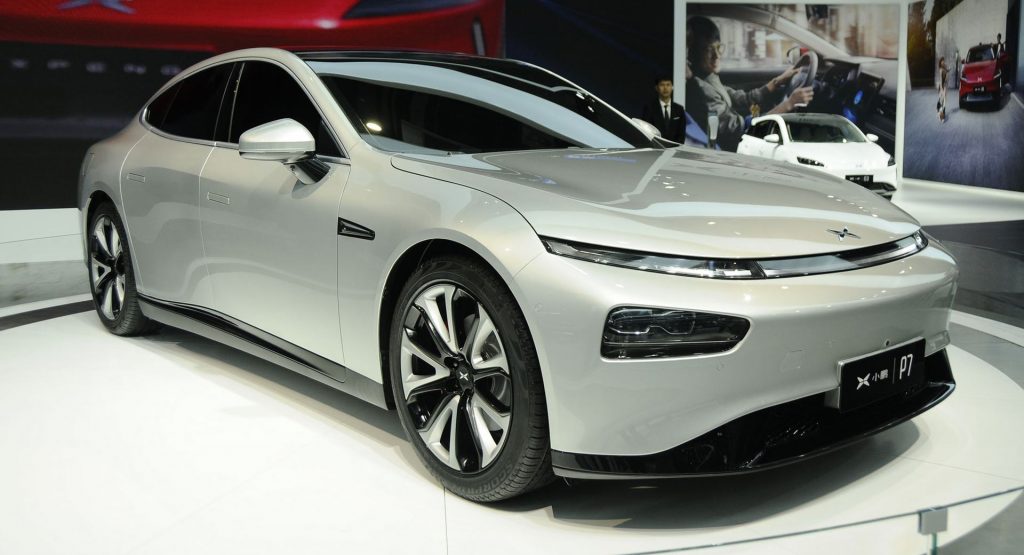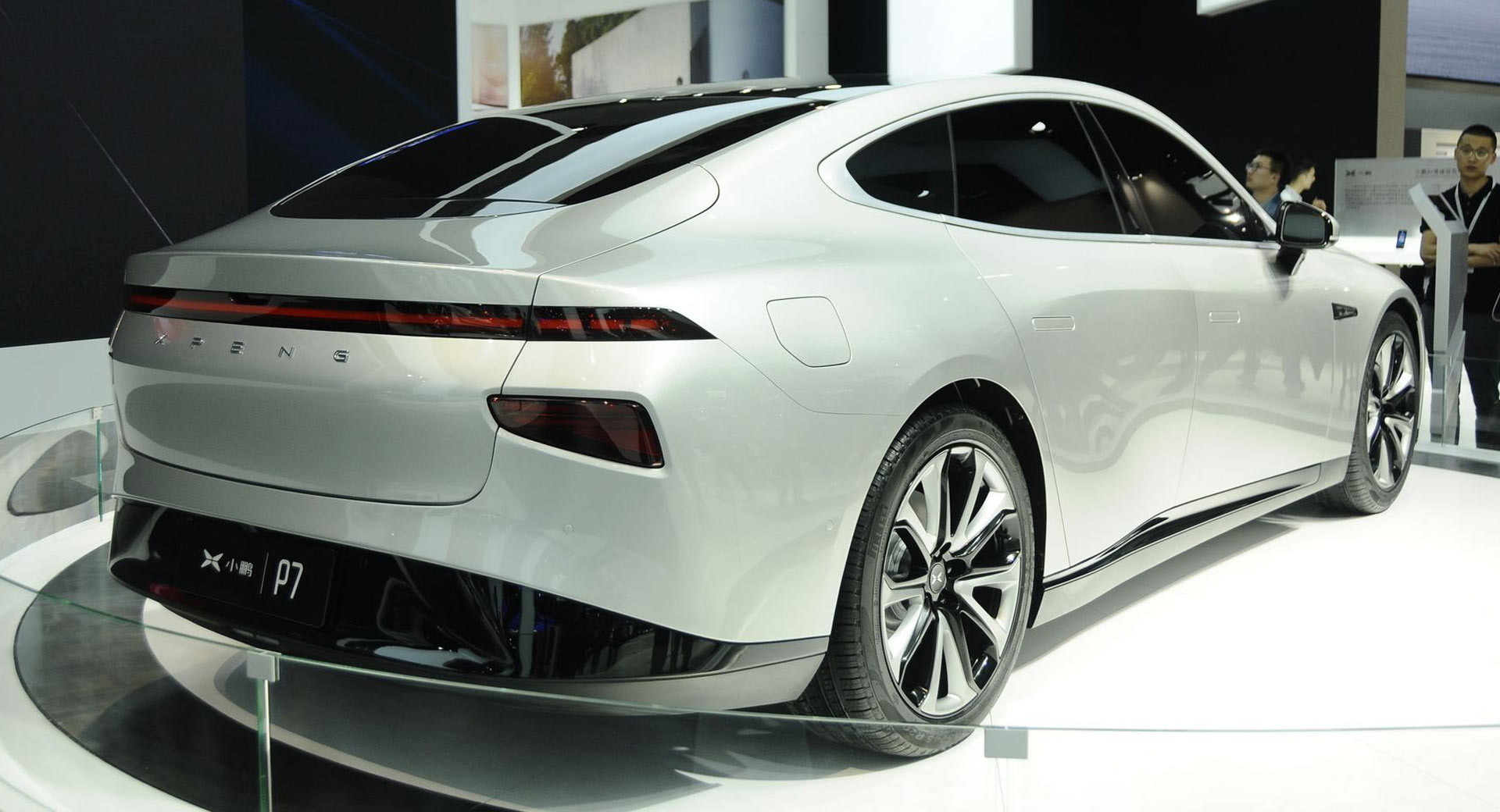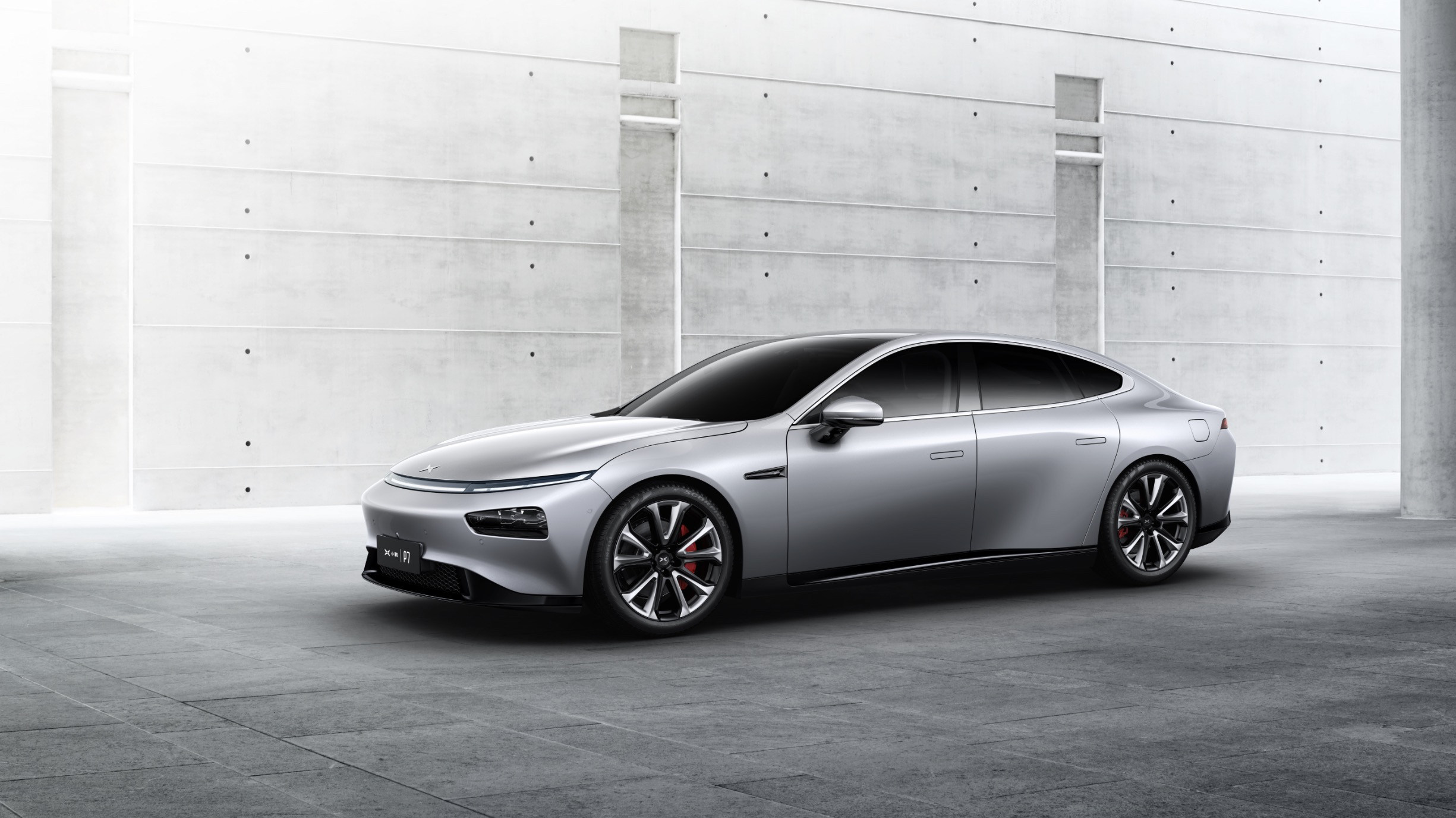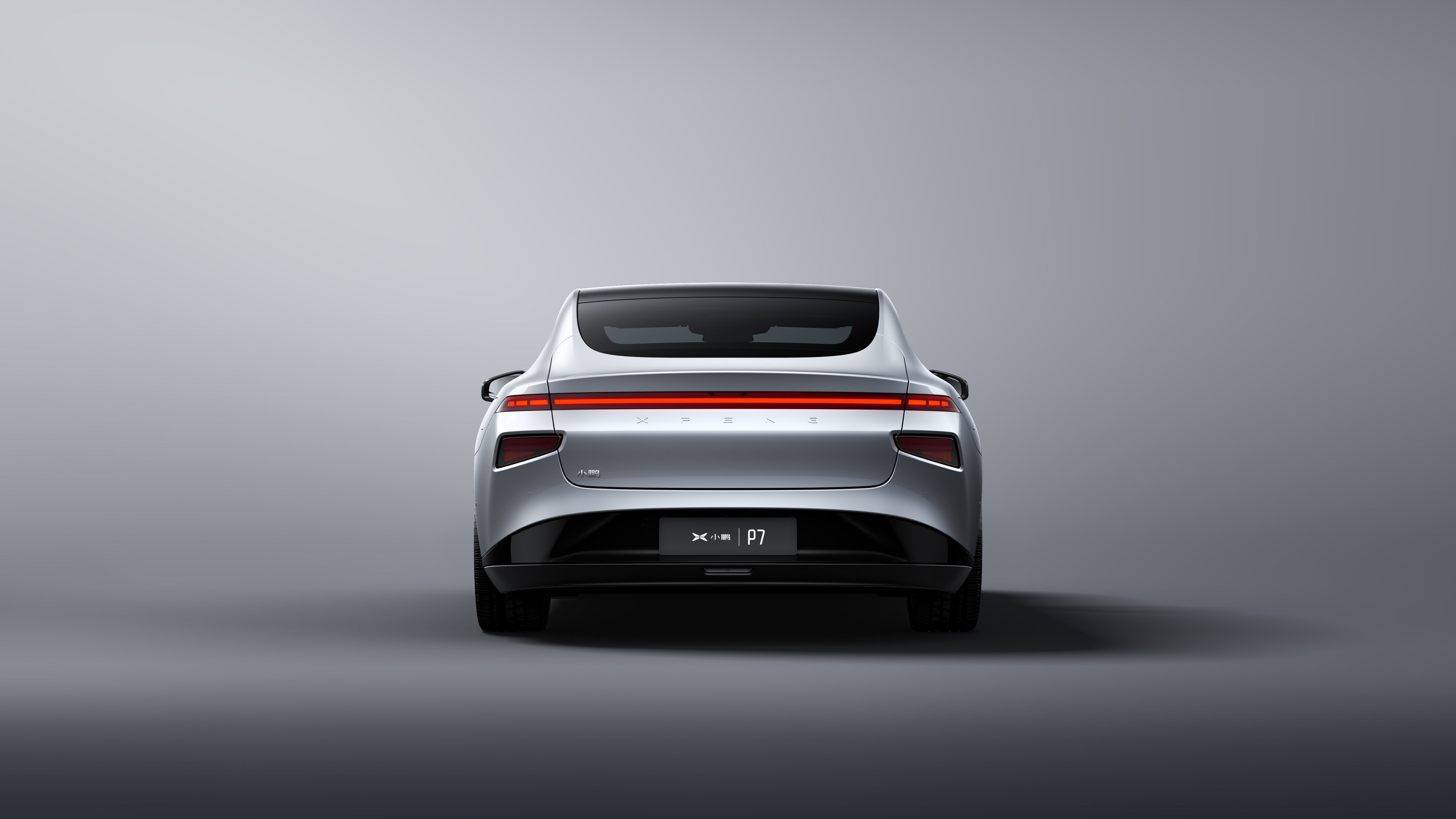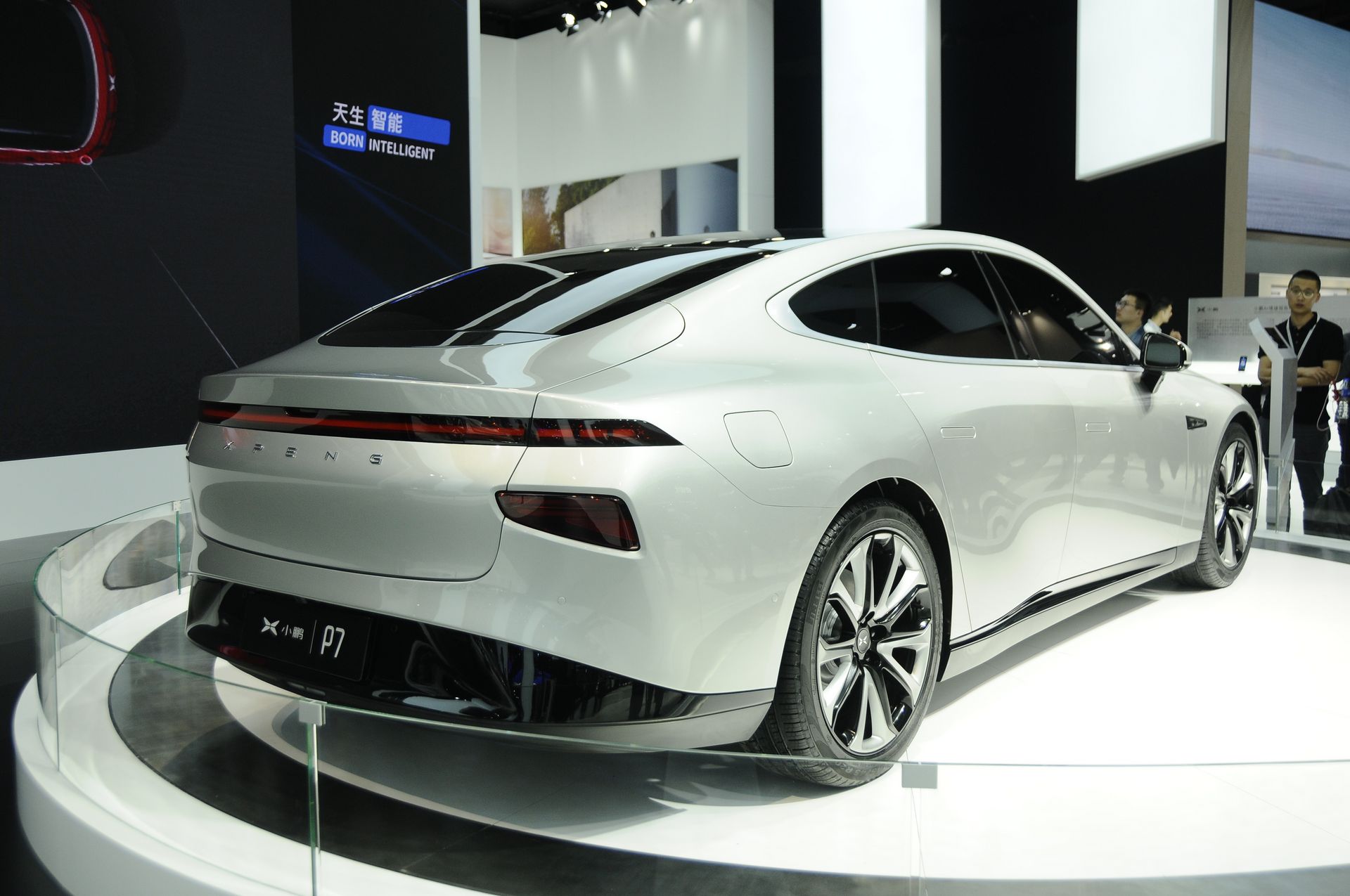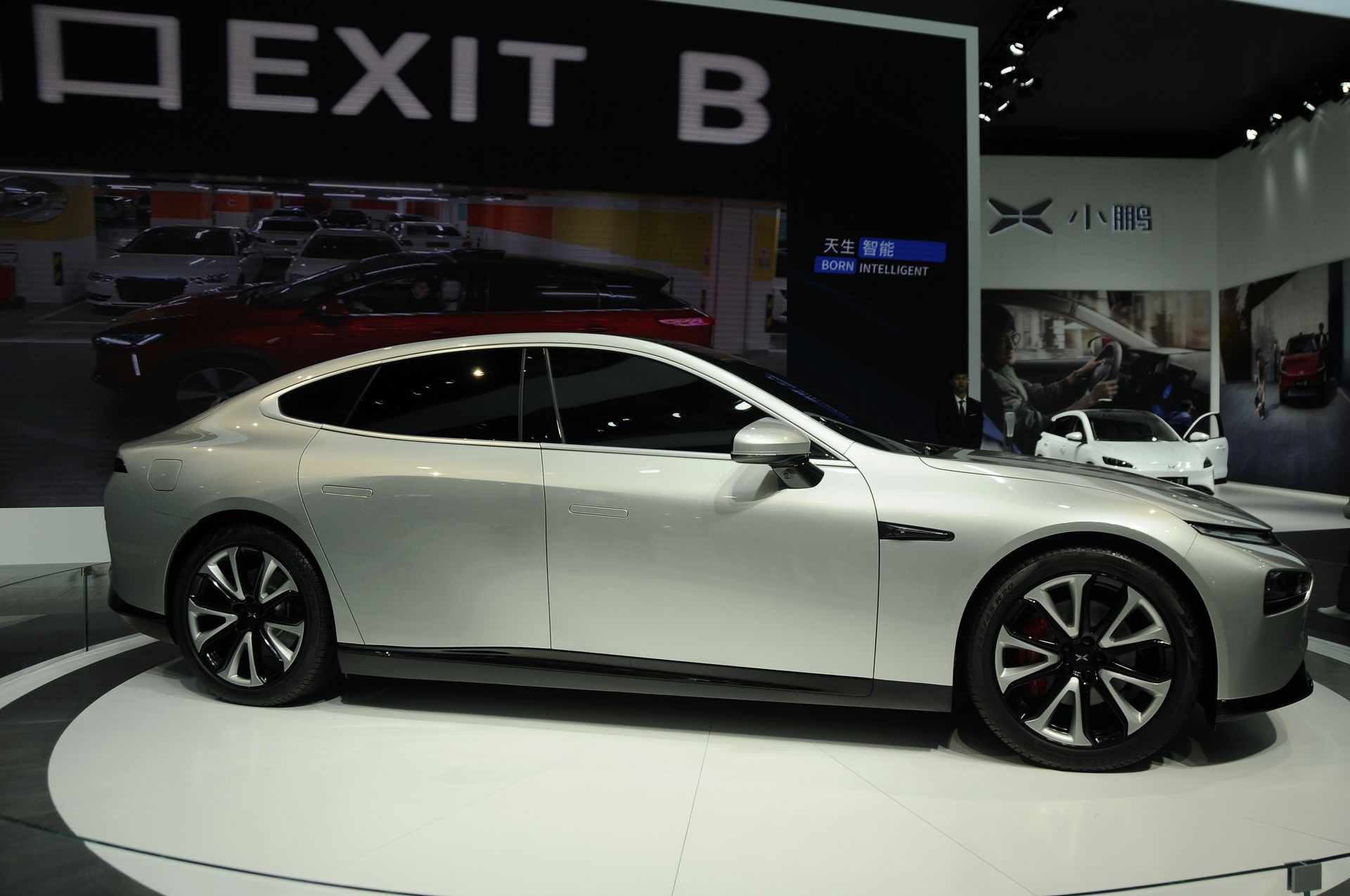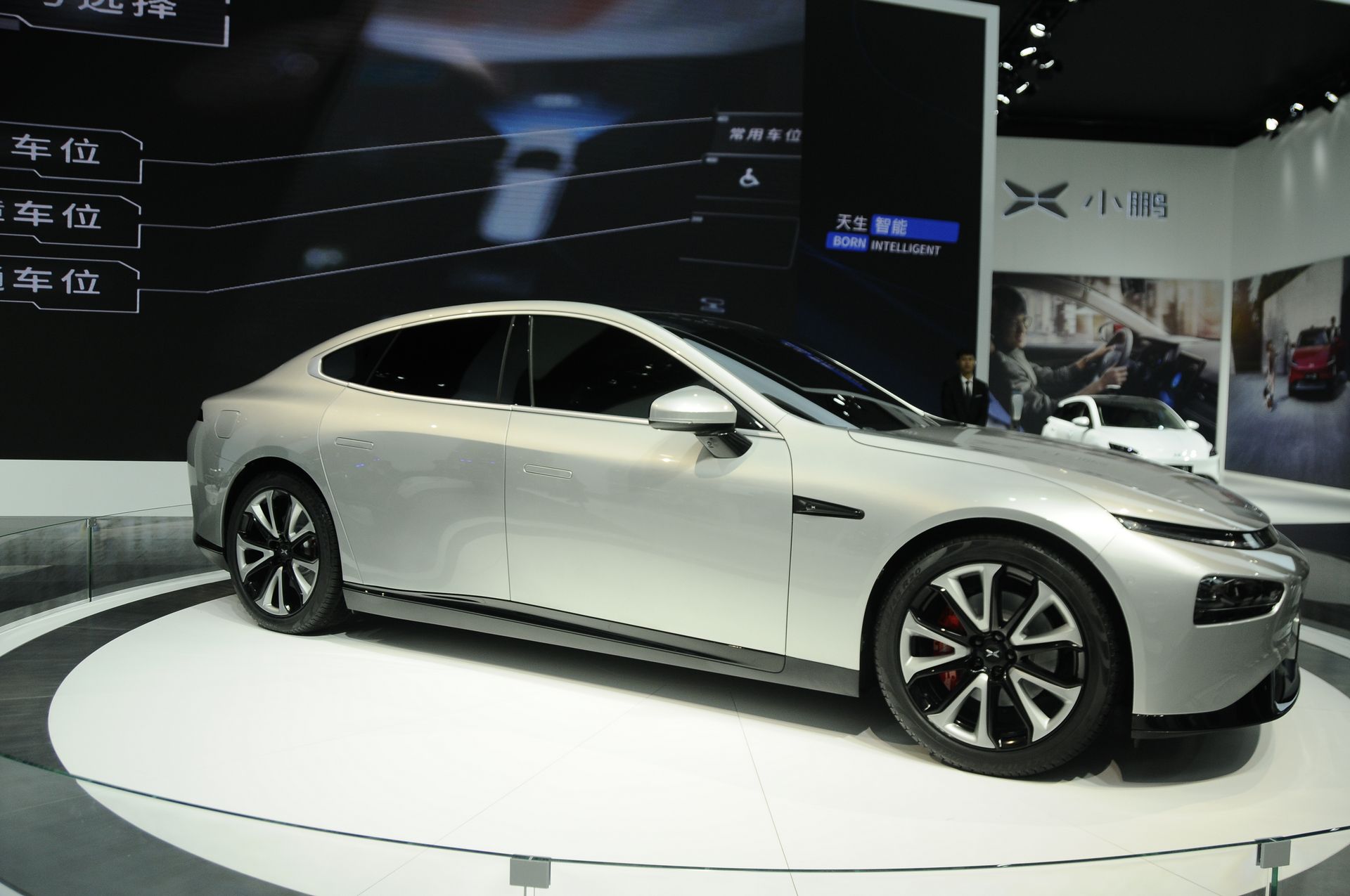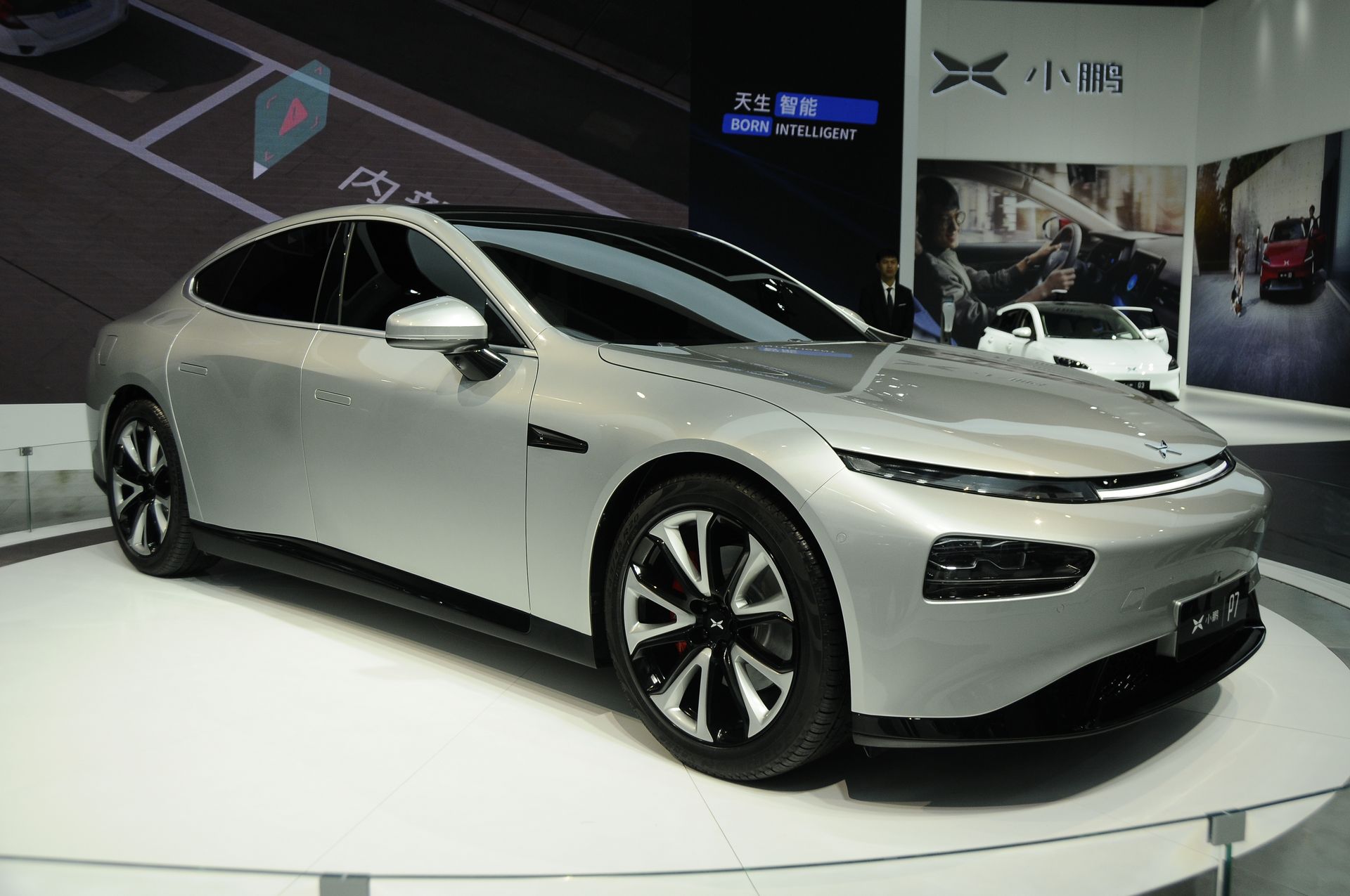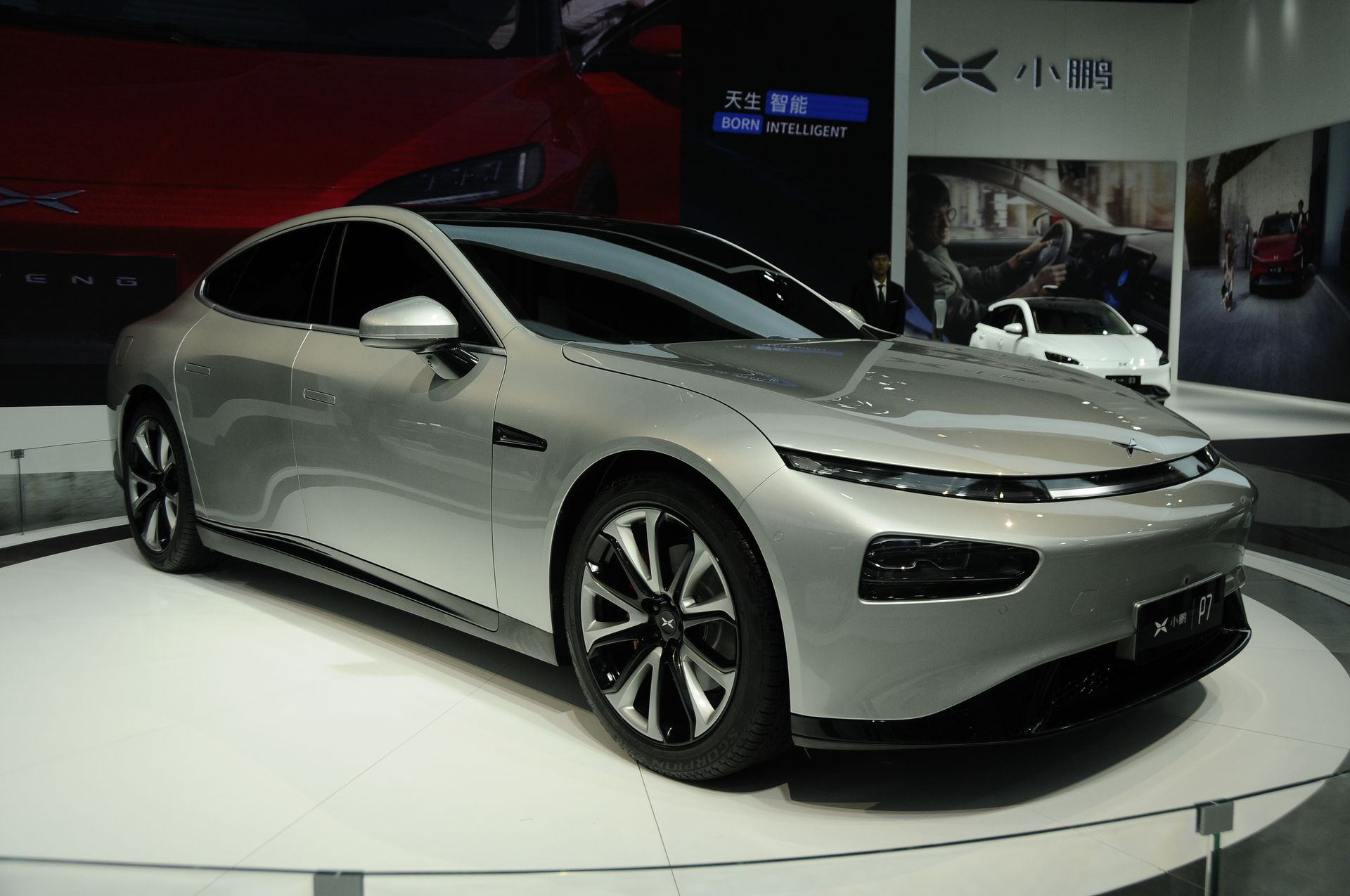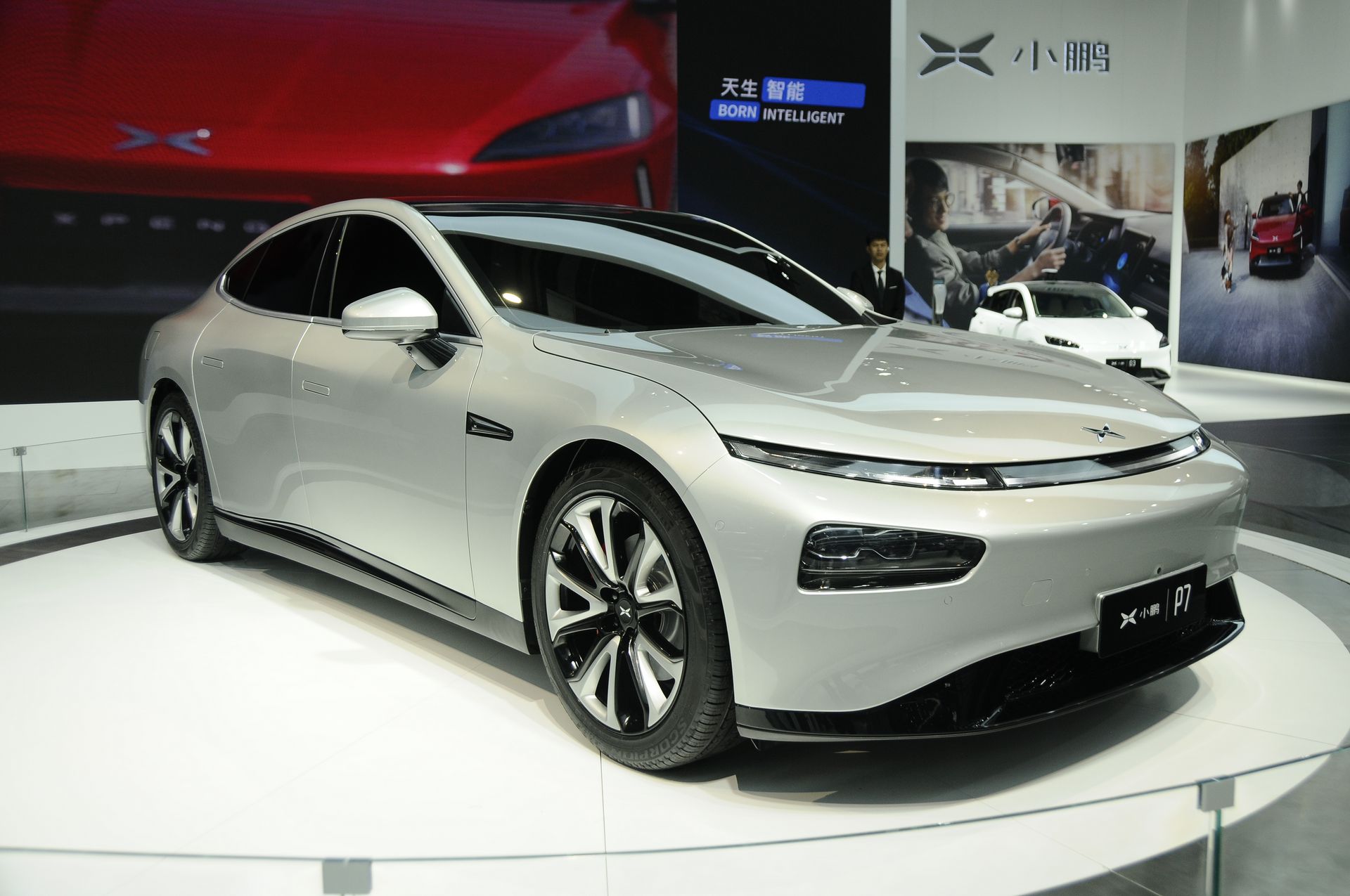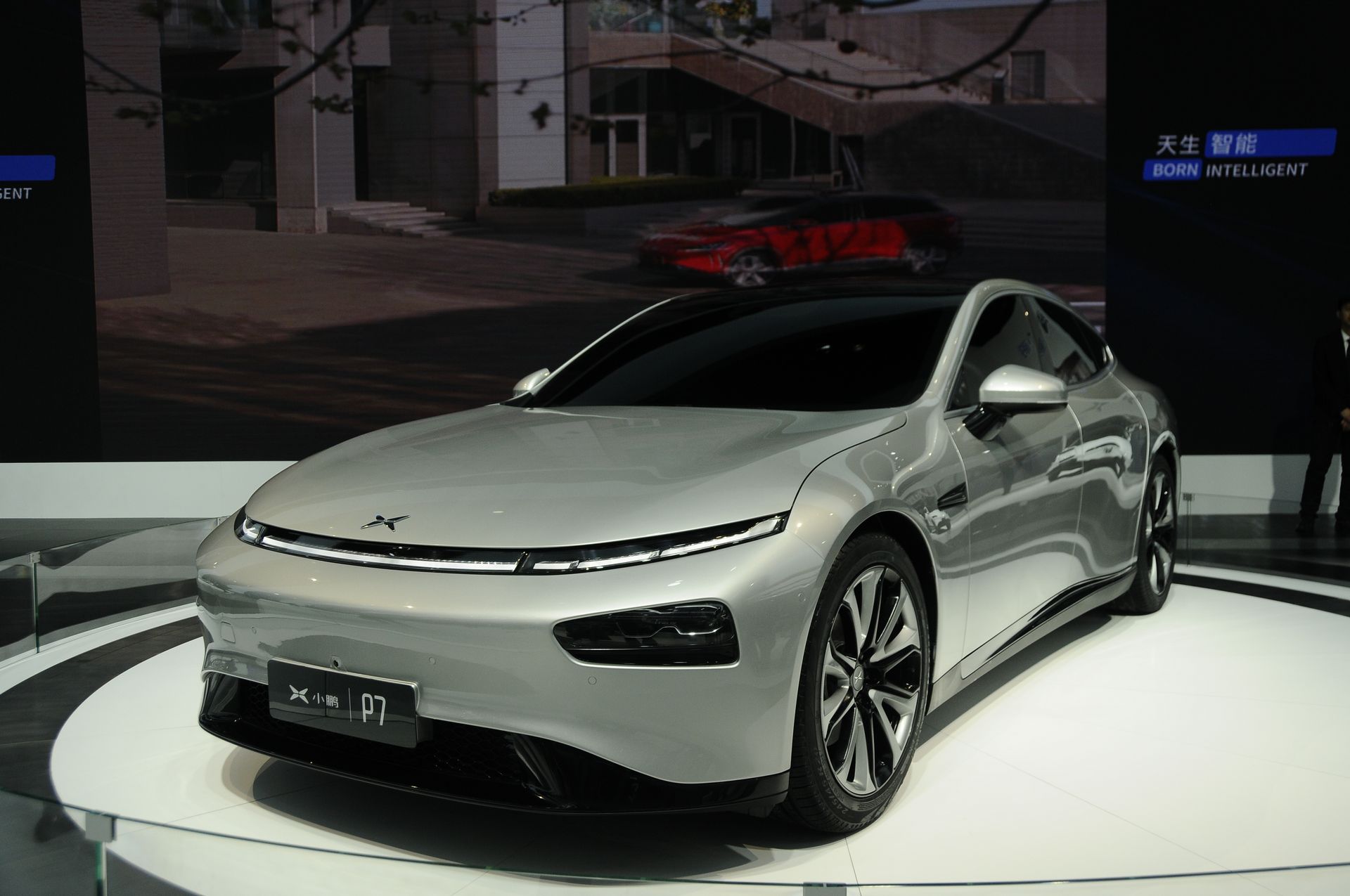Chinese electric car manufacturer Xpeng Motors has unveiled its second production model after the G3 SUV in the form of the P7 ‘intelligent electric coupe’.
The automaker says the P7, which was launched at the Shanghai Auto Show, is powered by two electric motors, one on each axle, that provide all-wheel drive and allow it to reach 100 km/h (62 mph) in a brisk 4 seconds. Details about the battery pack haven’t been announced, but Xpeng says the P7 can travel in excess of 600 km (372 miles) on a single charge in the NEDC cycle, so a battery pack close to or over 100 kWh is likely.
Beyond its potent powertrain, the Xpeng P7 incorporates the Nvidia Drive Xavier chip for autonomous driving as well as Qualcomm’s range-topping Snapdragon 820A automotive processor. These work together with Xpeng’s own XPILOT 3.0 system to give the P7 Level 3 autonomy, which includes active cruise control, lane selection of highways, and automatic parking in most situations.
The styling of the P7 is quite different than the G3 SUV and adopts a very sleek and low-slung shape. At the front, there are two thin headlights connected by a single LED light bar. Additionally, there are larger, secondary units (fog lights maybe?) on either side of the front bumper. The P7 also has door handles that sit flush with the bodywork and a low roofline, while the rear is dominated by a single light strip stretching the width of the sedan.
While Xpeng hasn’t released interior images of the vehicle, it says that it includes its user interface which drivers can interact with through voice, touch, and facial cues thanks to the system’s emotion recognition software.
“Xpeng Motors’ unique differentiation is its vision and corporate DNA. We intend to harness the power of AI, data integration and smart technology to jumpstart the evolution of the auto sector and enable it with ever greater intelligence,” said Xpeng Motors chairman and chief executive He Xiaopeng about the P7. “Our visually stunning and technologically groundbreaking models like the P7 demonstrate our determination and commitment to accelerate the development of smart mobility.”







